Some historical figures have been so mythologized that they have acquired a remarkable personality and started living their own lives after death. This is understandable, as some people achieve cult status due to some important actions that had such a big effect on the world that everyone imagines them as extraordinary people. However, these people were just like us who ended up doing extraordinary things. The truth of their lives may be very different from what you imagined.
10. Sir Arthur Conan Doyle
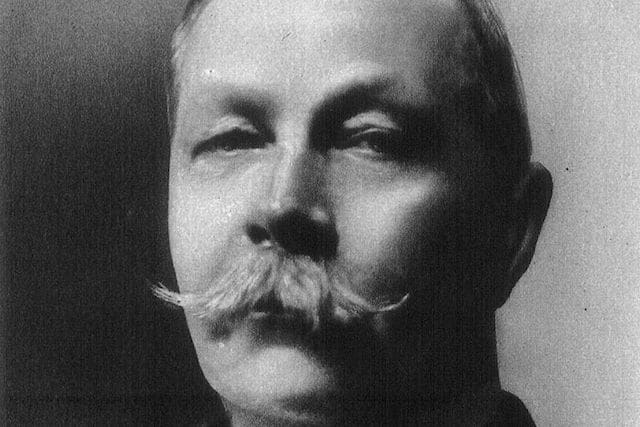
Arthur Conan Doyle is best known as the genius behind Sherlock Holmes, and to his great regret, he was never known for anything else. You see, although Arthur Conan Doyle is mostly known for writing Sherlock Holmes, hard-edged detective stories were not his true passion. Conan Doyle was an ophthalmologist, a historian, and a man with a passion for medicine and advanced science in general.
He was also not a very logical person, as most of us might think, as he became a self-confessed spiritualist later in life. When the infamous Cottingley Fairies hoax broke, Conan Doyle was there to publish an article in The Strand (the same magazine that published his famous stories) “proving” that the fairies were real. To make matters worse, he held séances and tried to get Houdini to join them. They eventually fell out because Houdini didn’t believe in spiritualism, while Doyle was convinced that his friend was refusing to tell him how to do real magic.
9. General George Armstrong Custer

George Armstrong Custer was an American military leader during the decline of the Native Americans. He was often tasked with trying to defeat Native forces or to capture the population and drive them to where the government wanted them to be. He was known as a valiant and brave fighter who led his men from the front. His hagiographies after his death are very kind to him, saying that even his death was a brave last stand.
However, while his story is so contradictory that it’s hard to say how good or evil the man really was, he wasn’t quite what most people imagine. While he liked to lead from the front, he was also known as a tribune who wore flashy clothes and sought glory at every turn. More importantly, his supposedly brave last stand wasn’t quite what the stories suggest. He was hunting a large group of natives, who he believed were mostly civilians. He was so concerned about not letting them escape him even temporarily that he tried to rush in and catch them off guard. If he had taken the time to scout out the area instead of acting hastily and recklessly, he would have realized before he entered that he was vastly outnumbered.
8. President Teddy Roosevelt
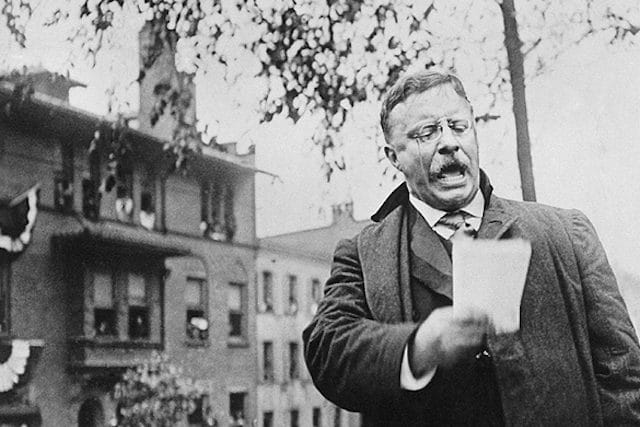
Teddy Roosevelt is a man who has become a towering figure in American mythology, and for many good reasons. Roosevelt was once saved from an assassin’s bullet by a huge speech he kept in his pocket, he championed most of America’s current environmental laws, and he was said to have looked down on big corporations. He’s also known for funnier things, like the legend of the teddy bear and how Roosevelt’s kindness has become a staple in children’s bedrooms everywhere.
Unfortunately, this is where things start to go wrong. The touching story of Teddy Roosevelt sparing a bear may have inspired the teddy bear, but that doesn't mean it was true. Roosevelt was out bear hunting but couldn't find one. An assistant found the bear and tied it to a tree. He gave up because it wasn't the sport he was looking for, and the bear was shot anyway.
This is entirely consistent with the main reason Roosevelt advocated conservation: he loved hunting. We're not saying that hunting isn't sometimes part of an overall conservation strategy, but the late American president believed that hunting is part of a love of nature that will help you appreciate the environment more.
7. Nikola Tesla
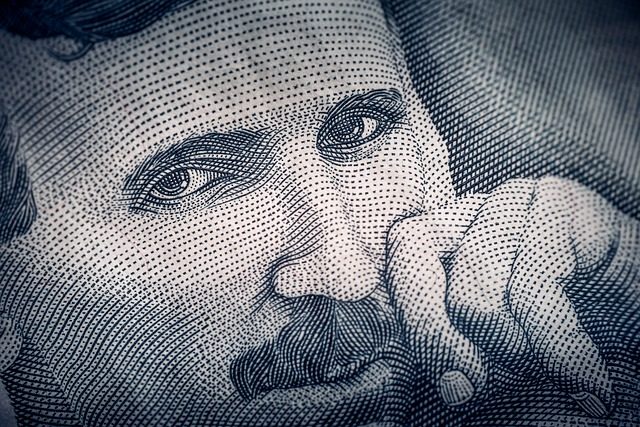
Nikola Tesla is seen by many as a patron saint of science and, in particular, misunderstood scientists. People continue to point to his rivalry and falling out with Thomas Edison as evidence that he was horribly mistreated and never got the money, credit or attention he deserved. Tesla is seen as a visionary who simply wasn't listened to enough.
Unfortunately, the truth is that some of Tesla’s most visionary ideas simply weren’t viable. Now, some argue that he simply didn’t get the funding he needed, but in his time, he was revered and had plenty of money for projects. JP Morgan even gave him $150,000 (a princely sum at the time) to build a wireless energy tower, but Tesla couldn’t make it work. Perhaps one of the reasons he had so many crazy ideas for inventions that weren’t viable is that, by his own admission, he slept only four hours a day or less. This loss of sleep may also have caused a psychosis that led him to believe he was in love with a certain white dove.
6. President Abraham Lincoln

Abraham Lincoln is one of the most famous people of the last few centuries and needs no introduction. We all know who this guy is. But that doesn’t necessarily mean we picture him correctly in every way. Although countless books and all sorts of historical documents have been written about him, the ability to record sound had not yet been invented, so we mostly have to use our imagination when it comes to what he sounded like. Knowing that he was a famous orator, people imagined that he had a deep, resonant voice that allowed him to captivate huge audiences.
The truth is, however, that Abraham Lincoln's voice was not deep at all. Lincoln's voice was much higher pitched than most people would imagine, and was described as shrill and piercing. However, that doesn't mean his voice was raspy or that it didn't carry. He mastered the art of projection and was known to be heard from the back of a crowd without any trouble. While we can't know for sure what he would have sounded like, Daniel Day-Lewis in the film "Lincoln" , is perhaps the most historically accurate example, as he attempted to portray it based on actual accounts of what it sounded like.
5. Johnny Appleseed (aka John Chapman)
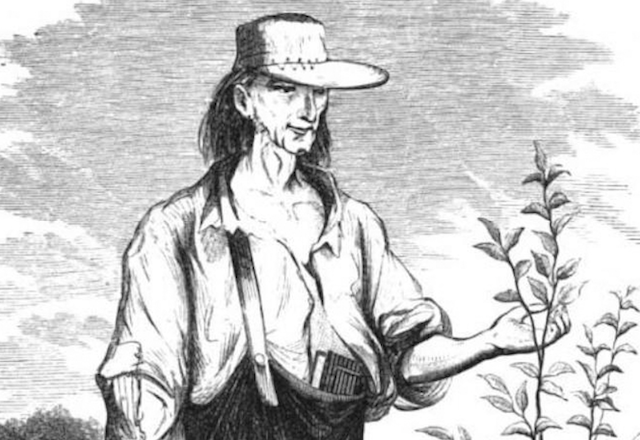
Johnny Appleseed is a mythologized figure in American history, folklore, and culture. He is known as a kind and generous man who planted apple trees all over the countryside, living largely off the generosity of the locals who enjoyed what he did. The Johnny Appleseed we all know loved apples (it’s kind of right there in the name, after all), and especially apple pie. Johnny just wanted the whole country to enjoy them, too, even if it didn’t make him any money. He’s such a larger-than-life figure that some aren’t even sure if he was even real or just a fake, like Betty Crocker.
While he was a real man named John Chapman, the rest is a bit of an exaggeration. Johnny did enjoy extolling the virtues of apples, but he did so because he believed they made excellent booze, and this is borne out by the varieties of seeds he planted. Those seeds grew into trees that produced tart apples that were great for making hard cider, but not much else. As for the generous, freeloading hippie character, the truth is that Chapman was a canny businessman. He would plant apple seeds on unused land, knowing that this gave him a claim on them in the future, then return years later to sell them at a profit.
4. Ponce De Leon
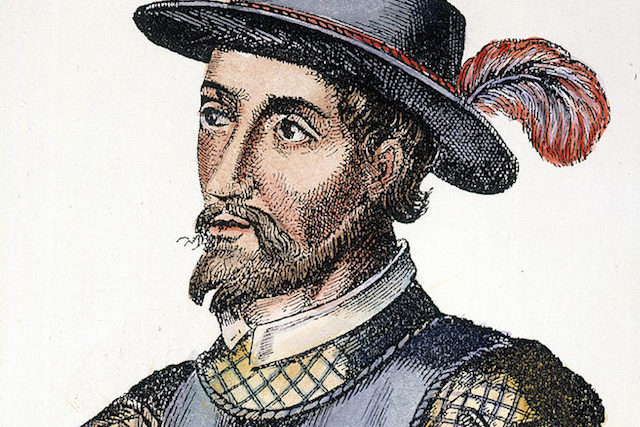
Ponce De Leon is known as one of the dumbest explorers ever written about in a biographer. He was a famous explorer in the days when Europeans first discovered what they called the New World, and was instrumental in mapping much of what we now know as Florida. (Does that technically make him the first person from Florida? Granted.) He was also known as the man who searched for the famous Fountain of Youth and, of course, never found it because it wasn’t real. He’s considered an idiot who was duped by Native Americans. What a fool, huh?
The reality is, however, that there is no evidence that Ponce was looking for some mythical fountain that would keep people young for the rest of the earth's existence. Of course, if he wasn't looking for a fountain of youth, the question is why so many people believe he was. The reason is that after his death, a biographer who hadn't been particularly interested in him in life began to claim that this was his goal during his exploration of the New World. In other words, we believe it because a man successfully ruined another man's reputation after his death.
3. General Robert E. Lee
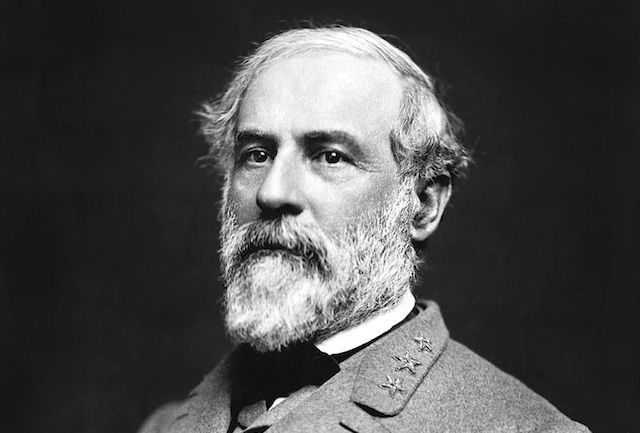
Robert E. Lee is often viewed as a tragic hero, or at least a tragic figure in a terrible drama. He is seen as a mostly noble man, torn between country and family. This loving hagiography of Lee has led countless Southerners to name their children after his last name (instead of calling them Robert, which would have made more sense). It has also led most people to respect him on some level, regardless of how they feel about the American Civil War.
Lee may have been genuinely concerned about the war, but that doesn’t mean he was a particularly good or honorable man. You see, before he became a famous Civil War general, Robert E. Lee had a stepfather who died and left him a fair amount of land and slaves. The only problem was a clause that said the slaves would only be forced to work for six years after his death. Lee fought this in court and won so they could continue to work. Lee then turned out to be a tyrant towards his slaves, encouraging his overseers to be harsh and especially cruel to any slaves who tried to escape or were disobedient. While you might expect a wealthy, high-ranking member of the Confederacy to be a pretty big jerk, somehow Lee’s reputation came out of the Civil War much cleaner than he ever deserved.
2. Joseph Pulitzer

Joseph Pulitzer is one of the most recognizable names in the world of writing and publishing. There is an award named after him for lifetime achievement in publishing, and even if you know nothing else about the award, you know that it is extremely prestigious and important. For this reason, most people consider Pulitzer a man of great honor and integrity who raised the publishing industry and the world of literature to a higher level. Unfortunately, the truth about Pulitzer is not so flattering to his legacy.
The award is not given because after his death people decided that he was so great that writers should be celebrated in his name. Rather, it was a stipulation in his will that some of his remaining money be used to create a lasting legacy. This was an understandable wish, given the reputation he had built for himself during his lifetime.
Pulitzer and his New York World and William Randolph Hearst and his New York Journal are credited with lying before and during the Spanish-American War in an attempt to outdo each other. Some historians now debate how much responsibility they bore for starting the war, but there is no doubt that their journalism was extremely irresponsible.
1. Martin Luther King Jr.
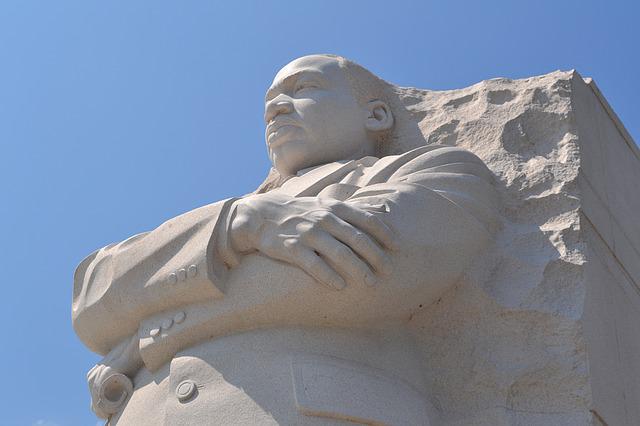
When it comes to the American Civil Rights Movement, it’s hard to argue that there’s a more influential and powerful figure than Dr. Martin Luther King, Jr. To this day, in times of political unrest in the United States, Dr. King’s words and wisdom are relevant on both sides of the aisle. In recent years, during the height of the Black Lives Matter movement, his method of peaceful protest has been seen as the “right” way to rebel against people you feel have wronged or oppressed you. Critics of such movements will point to MLK’s methods as the “right” way to protest (while failing to see the irony in telling people who feel beaten down and unheard how, when, and where to rebel). But that’s a gross oversimplification when you consider that the reality was not so black and white.
While no one can put words in MLK’s mouth, there is reason to believe that he did not necessarily believe in simply turning the other cheek in every situation. Dr. King knew that in the Old South, anything other than passive resistance would have been, in effect, death for the people protesting (famously, “Today there is no longer a choice between violence and nonviolence; it is either nonviolence or nonexistence”). For this reason, he had to adopt tactics that made sense based on where he lived and his upbringing. Many historians have argued that Malcolm X and MLK were hardly enemies, but were, in fact, two sides of the same coin. In fact, in a speech shortly before his assassination, Dr. King advised young black men to never let anyone take away their manhood. Yes, he was a man of peace, but he was a man of defiance and, like his dear friend, the late politician and activist John Lewis, a proponent of good problems.













Оставить Комментарий